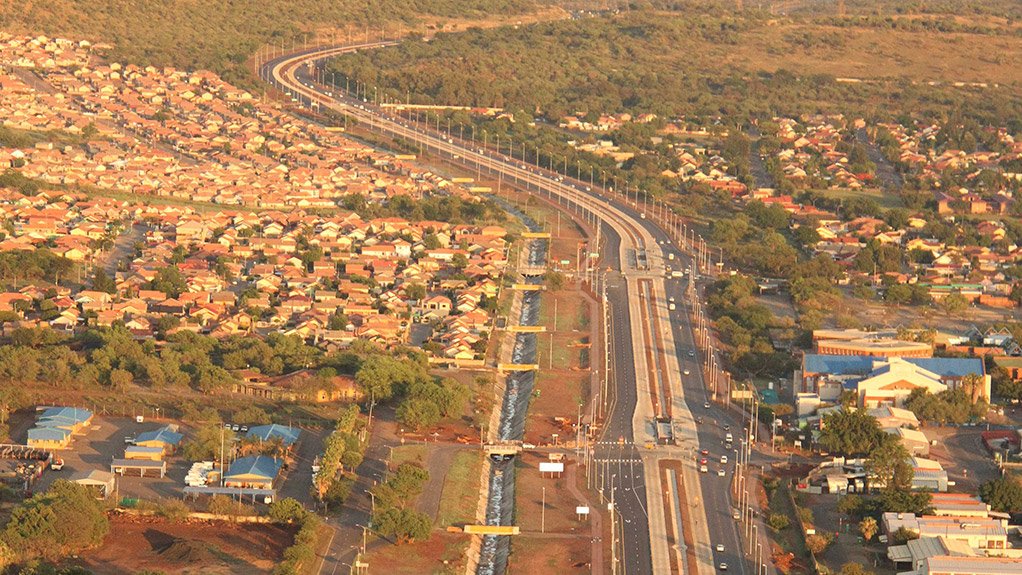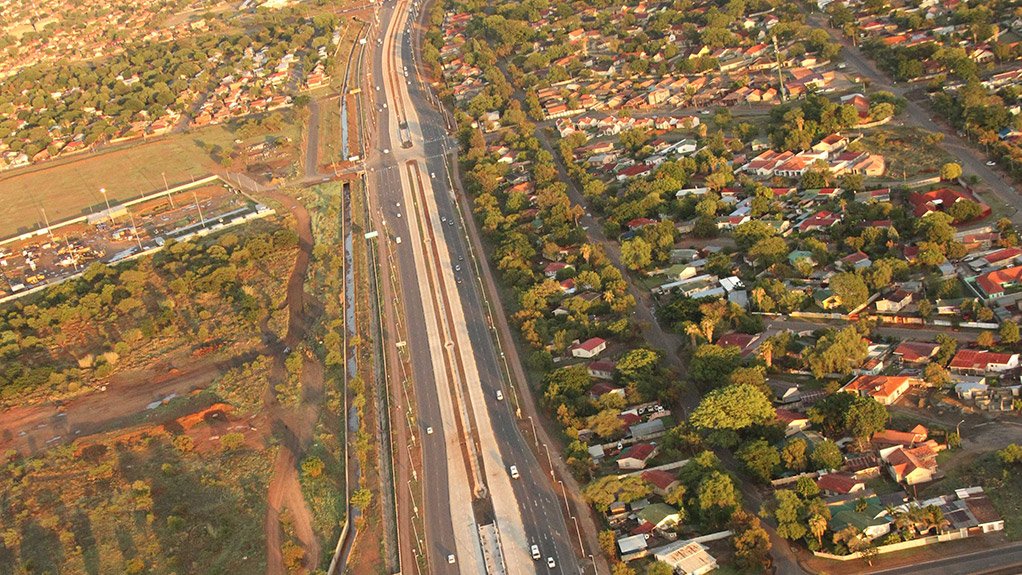As the construction of Rustenburg’s new public transport infrastructure continues “apace”, the city’s bus rapid transport (BRT) project team said on Monday that the first of the four-phase BRT network would be launched on three separate dates in early 2016.
Phase 1 would now be divided into three operational launch dates: Phase 1A, 1B and 1C, while Phase 2 remained unchanged.
Phase 1A and 1C would see operations start in March and October 2016, while Phases 1B and 2 would come into effect in 2017 and 2018 respectively. Phase 3 and 4 would follow thereafter.
Phase 1A operations along the R104 Swartruggens road would be the first BRT service in the city, supporting 43 500 passengers using 36 standard buses with a carrying capacity of up to 36 seated and 44 standing passengers along six routes.
The bus lanes, pedestrian lanes, cycle lanes and pedestrian crossings had been completed, and construction would now start on the six stations along the R104 in the coming months.
Rustenburg Rapid Transport (RRT) acting director Amogelang Kgoathe added that there had been “unforeseen delays” in starting development of the central station.
The possible rezoning of Thabo Mbeki street was currently being investigated, which had had an impact on the overall project plan.
“The bus depots and the transport management centre for our initial operations in Phase 1A and possibly Phase 1C will be from temporary locations until the infrastructure programme catches up,” she outlined.
Kgoathe added that the decision to introduce BRT services in a phased approach was taken “for a few reasons”.
“The first is that we do not want to wait until all the infrastructure is complete before starting services, as this will be an ongoing project and we want to deliver to the residents sooner rather than later.
“The second is that, with each phase, we know we will be learning and gathering insights to make the next phase better and more efficient, making our business model stronger,” she commented.
In finalising the initial operations, the transport planning consulting team had also tested and amended passenger and bus numbers to ensure they were set “realistically” and guaranteed an affordable service.
“There is no major change from our original estimates, but we have sharpened our pencils and are comfortable that the figures are in line with the expected service demand.
“Passenger and bus figures are obviously not at full capacity at launch and will take some time to build as residents learn to use the service and become more familiar with schedules and stops,” she noted.
In line with the construction and route plans, negotiations with the affected taxi and bus operators in Phases 1 and 2 were progressing.
Kgoathe said the team was working closely with the Taxi Negotiating Forum and the Bojanala Bus Company to agree the process for procuring the operational bus fleet, which would be owned by the envisaged bus operating companies.
“The RRT project team will be sharing more information on the brand name, launch and the status of negotiations with the industry, along with the operational plans, in October. We continue to invite stakeholders and the public to engage with us if there are any questions or concerns,” she said.
EMAIL THIS ARTICLE SAVE THIS ARTICLE
To subscribe email subscriptions@creamermedia.co.za or click here
To advertise email advertising@creamermedia.co.za or click here













